-
 bitcoin
bitcoin $87959.907984 USD
1.34% -
 ethereum
ethereum $2920.497338 USD
3.04% -
 tether
tether $0.999775 USD
0.00% -
 xrp
xrp $2.237324 USD
8.12% -
 bnb
bnb $860.243768 USD
0.90% -
 solana
solana $138.089498 USD
5.43% -
 usd-coin
usd-coin $0.999807 USD
0.01% -
 tron
tron $0.272801 USD
-1.53% -
 dogecoin
dogecoin $0.150904 USD
2.96% -
 cardano
cardano $0.421635 USD
1.97% -
 hyperliquid
hyperliquid $32.152445 USD
2.23% -
 bitcoin-cash
bitcoin-cash $533.301069 USD
-1.94% -
 chainlink
chainlink $12.953417 USD
2.68% -
 unus-sed-leo
unus-sed-leo $9.535951 USD
0.73% -
 zcash
zcash $521.483386 USD
-2.87%
Is Bitcoin futures trading a scam?
Bitcoin futures trading can be legitimate but carries risks; always use regulated platforms and watch for scams like fake exchanges or Ponzi schemes.
Jul 22, 2025 at 01:42 am
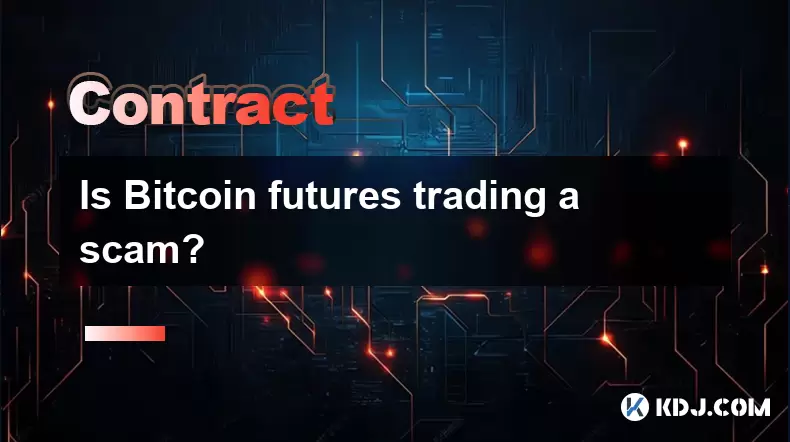
Understanding Bitcoin Futures Trading
Bitcoin futures trading refers to the process of buying and selling contracts that derive their value from the future price of Bitcoin. These contracts allow traders to speculate on the price movement of Bitcoin without actually owning the underlying asset. While the concept itself is legitimate, there are risks and misconceptions that lead many to question whether Bitcoin futures trading is a scam.
One of the primary reasons for confusion is the lack of regulation in some markets, which can create an environment where fraudulent activities thrive. In regulated markets, such as those overseen by the U.S. Commodity Futures Trading Commission (CFTC), Bitcoin futures are offered by reputable exchanges like CME Group. However, in unregulated or loosely regulated jurisdictions, scammers may offer fake futures contracts or manipulate prices to defraud investors.
Legitimate Platforms vs. Fraudulent Schemes
Not all Bitcoin futures trading platforms are created equal. The distinction between a legitimate exchange and a fraudulent platform is crucial. Legitimate platforms operate transparently, provide clear terms for contract execution, and often have robust security measures in place.
Fraudulent schemes, on the other hand, may exhibit the following red flags:
- Promises of guaranteed returns or unusually high profits
- Lack of transparency regarding fees, contract terms, or execution mechanisms
- Pressure to invest quickly without proper due diligence
- Poor customer support and difficulty in withdrawing funds
Traders should always verify the licensing and regulatory compliance of any platform before engaging in futures trading. Cross-checking with official regulatory bodies can help identify whether a platform is trustworthy.
How Bitcoin Futures Contracts Work
To understand whether Bitcoin futures trading is a scam, it's essential to grasp how these contracts function. A Bitcoin futures contract is an agreement to buy or sell Bitcoin at a predetermined price on a specified future date. The value of the contract is tied to the price of Bitcoin at the time of settlement.
Here’s a breakdown of how this works:
- Long Position: A trader buys a futures contract expecting the price of Bitcoin to rise.
- Short Position: A trader sells a futures contract anticipating a drop in Bitcoin’s price.
- Leverage: Many platforms allow traders to use leverage, which means they can control larger positions with a smaller amount of capital. However, leverage increases both potential gains and losses.
- Margin Requirements: Traders must maintain a minimum account balance (margin) to keep their positions open. Failure to meet margin calls can result in automatic liquidation.
It’s important to note that futures trading is complex and not suitable for all investors. Those who lack understanding of the mechanics and risks involved are more vulnerable to scams or significant losses.
Common Scams in Bitcoin Futures Trading
Several types of scams are prevalent in the cryptocurrency space, especially around futures trading:
- Fake Exchanges: Websites that mimic real exchanges and lure users into depositing funds, only to disappear later.
- Ponzi Schemes: Operators promise high returns by reinvesting user funds, but in reality, they pay early investors with money from new participants.
- Phishing Scams: Fraudsters create fake login pages or send deceptive emails to steal account credentials.
- Signal Groups and Bots: Some groups or automated trading bots promise guaranteed profits but are often fronts for collecting fees or personal data.
Recognizing these red flags can help users avoid falling victim to scams. Always conduct thorough research before joining any platform or group offering futures trading services.
Protecting Yourself While Trading Bitcoin Futures
To safely engage in Bitcoin futures trading, follow these best practices:
- Use Regulated Platforms: Stick to exchanges that are licensed and operate under clear regulatory frameworks.
- Enable Two-Factor Authentication (2FA): This adds an extra layer of security to your account.
- Store Funds Securely: Keep the majority of your funds in cold storage wallets and only deposit what you're willing to risk on trading platforms.
- Educate Yourself: Understand the mechanics of futures trading, including leverage, margin, and liquidation risks.
- Verify Communications: Always double-check URLs and email addresses to avoid phishing attempts.
Being proactive about security and education significantly reduces the likelihood of encountering scams.
Frequently Asked Questions
Q: Can I lose more money than I deposit when trading Bitcoin futures?A: Yes, if you use leverage, your losses can exceed your initial deposit. This is known as a margin call or liquidation, where the platform automatically closes your position to prevent further losses.
Q: Are Bitcoin futures the same as spot trading?A: No, spot trading involves buying and selling actual Bitcoin at the current market price, while futures trading involves contracts based on future price expectations. Futures also introduce additional risks like expiration dates and leverage.
Q: How do I know if a futures trading platform is regulated?A: Check the platform’s official website for licensing information and cross-reference with the relevant regulatory authority in your country. For example, in the U.S., the CFTC oversees commodity futures, including Bitcoin futures.
Q: What should I do if I suspect I’ve been scammed?A: Immediately stop any further transactions and report the incident to local authorities or financial regulators. If possible, freeze your accounts and change all passwords and 2FA settings.
Disclaimer:info@kdj.com
The information provided is not trading advice. kdj.com does not assume any responsibility for any investments made based on the information provided in this article. Cryptocurrencies are highly volatile and it is highly recommended that you invest with caution after thorough research!
If you believe that the content used on this website infringes your copyright, please contact us immediately (info@kdj.com) and we will delete it promptly.
- Bitcoin Faces Liquidity Test Amid Shifting Institutional Support Landscape
- 2026-02-05 13:05:01
- Volkswagen Tayron R-Line 7-Seater: A New Era of Luxury Family SUV Hits India
- 2026-02-05 13:00:01
- AI, Crypto Bounties, and Human Labor: The Shifting Landscape of Work
- 2026-02-05 13:00:01
- Volkswagen Unleashes the Tayron R-Line: Pre-Bookings Now Live for Flagship Seven-Seater SUV
- 2026-02-05 12:55:01
- Bitcoin Drops Amidst Analyst Warnings and Shifting Market Sentiment
- 2026-02-05 09:40:02
- The Great Stablecoin Showdown: Systemic Risk, the GENIUS Act, and the Battle for Wall Street's Future
- 2026-02-05 12:55:01
Related knowledge

How to Manage Emotions and "Revenge Trading" in Futures?
Feb 05,2026 at 12:19am
Understanding Emotional Triggers in Futures Markets1. Market volatility directly impacts psychological states, often amplifying fear or euphoria based...

How to Analyze Market Sentiment Using the Fear and Greed Index?
Feb 05,2026 at 07:40am
Understanding the Fear and Greed Index1. The Fear and Greed Index is a composite metric designed to quantify prevailing emotional states among cryptoc...
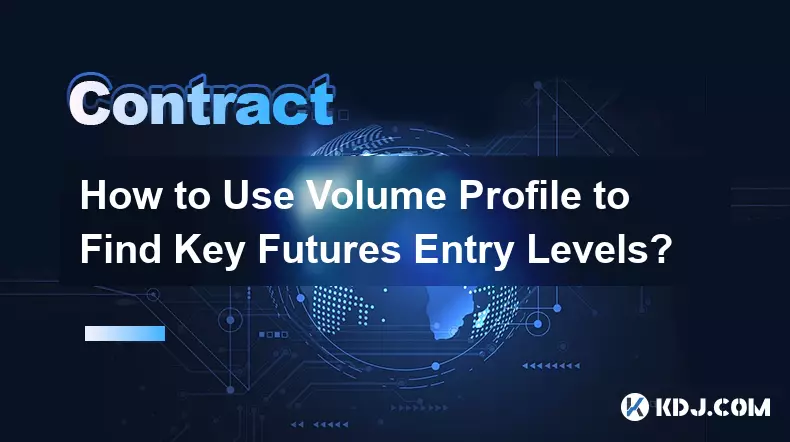
How to Use Volume Profile to Find Key Futures Entry Levels?
Feb 04,2026 at 11:39pm
Understanding Volume Profile Structure1. Volume Profile displays the distribution of traded volume at specific price levels over a defined time period...
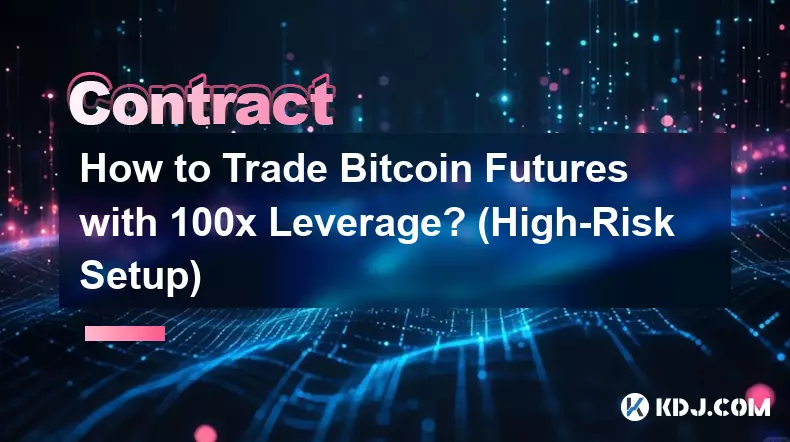
How to Trade Bitcoin Futures with 100x Leverage? (High-Risk Setup)
Feb 05,2026 at 11:00am
Understanding Bitcoin Futures Mechanics1. Bitcoin futures contracts represent agreements to buy or sell BTC at a predetermined price and date in the f...
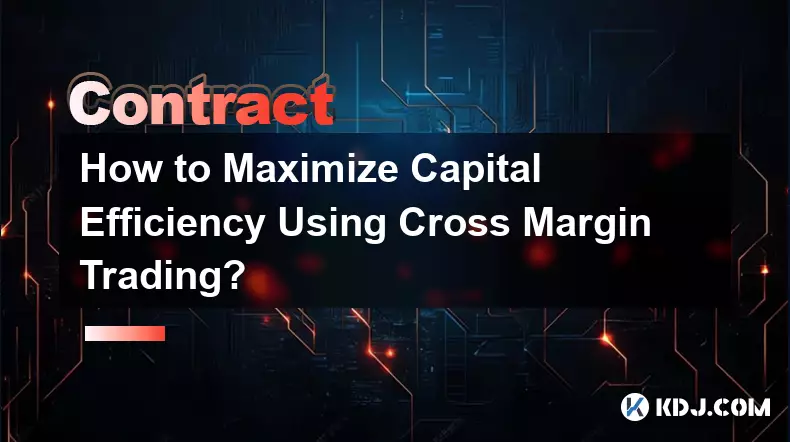
How to Maximize Capital Efficiency Using Cross Margin Trading?
Feb 05,2026 at 12:40am
Cross Margin Trading Fundamentals1. Cross margin trading allows traders to use their entire account balance as collateral for open positions across mu...
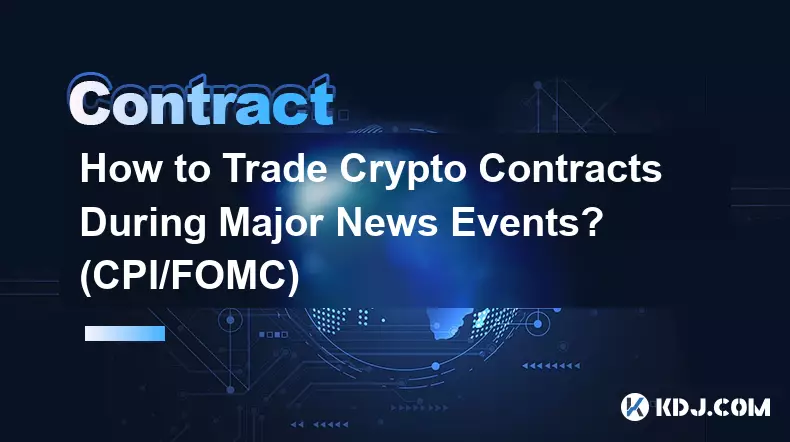
How to Trade Crypto Contracts During Major News Events? (CPI/FOMC)
Feb 05,2026 at 09:59am
Understanding Market Sensitivity to Macro Data Releases1. Cryptocurrency futures markets exhibit pronounced volatility during U.S. CPI and FOMC announ...

How to Manage Emotions and "Revenge Trading" in Futures?
Feb 05,2026 at 12:19am
Understanding Emotional Triggers in Futures Markets1. Market volatility directly impacts psychological states, often amplifying fear or euphoria based...

How to Analyze Market Sentiment Using the Fear and Greed Index?
Feb 05,2026 at 07:40am
Understanding the Fear and Greed Index1. The Fear and Greed Index is a composite metric designed to quantify prevailing emotional states among cryptoc...

How to Use Volume Profile to Find Key Futures Entry Levels?
Feb 04,2026 at 11:39pm
Understanding Volume Profile Structure1. Volume Profile displays the distribution of traded volume at specific price levels over a defined time period...

How to Trade Bitcoin Futures with 100x Leverage? (High-Risk Setup)
Feb 05,2026 at 11:00am
Understanding Bitcoin Futures Mechanics1. Bitcoin futures contracts represent agreements to buy or sell BTC at a predetermined price and date in the f...

How to Maximize Capital Efficiency Using Cross Margin Trading?
Feb 05,2026 at 12:40am
Cross Margin Trading Fundamentals1. Cross margin trading allows traders to use their entire account balance as collateral for open positions across mu...

How to Trade Crypto Contracts During Major News Events? (CPI/FOMC)
Feb 05,2026 at 09:59am
Understanding Market Sensitivity to Macro Data Releases1. Cryptocurrency futures markets exhibit pronounced volatility during U.S. CPI and FOMC announ...
See all articles























![KING vs PAINIFY😳 (1v1 ZONEWARS) [FORTNITE TOKEN/WAGER] KING vs PAINIFY😳 (1v1 ZONEWARS) [FORTNITE TOKEN/WAGER]](/uploads/2026/02/05/cryptocurrencies-news/videos/origin_6984035326d58_image_500_375.webp)
![2/4 [U.S. Hot Search] CIA: Xi Jinping is a paranoid | Xi Jinping’s two phone calls | Shandong’s “Internet-addicted” teenagers rebelled against tyranny | A direct attack on the Chengdu hacker national team | Why GDP must grow by 5% | The bridge under construction by the China Railway 12th Bureau collapsed | Thousands of billions of dollars spent abroad and thirty billion domestic subsidies | 2/4 [U.S. Hot Search] CIA: Xi Jinping is a paranoid | Xi Jinping’s two phone calls | Shandong’s “Internet-addicted” teenagers rebelled against tyranny | A direct attack on the Chengdu hacker national team | Why GDP must grow by 5% | The bridge under construction by the China Railway 12th Bureau collapsed | Thousands of billions of dollars spent abroad and thirty billion domestic subsidies |](/uploads/2026/02/05/cryptocurrencies-news/videos/origin_69840a757417b_image_500_375.webp)

















































